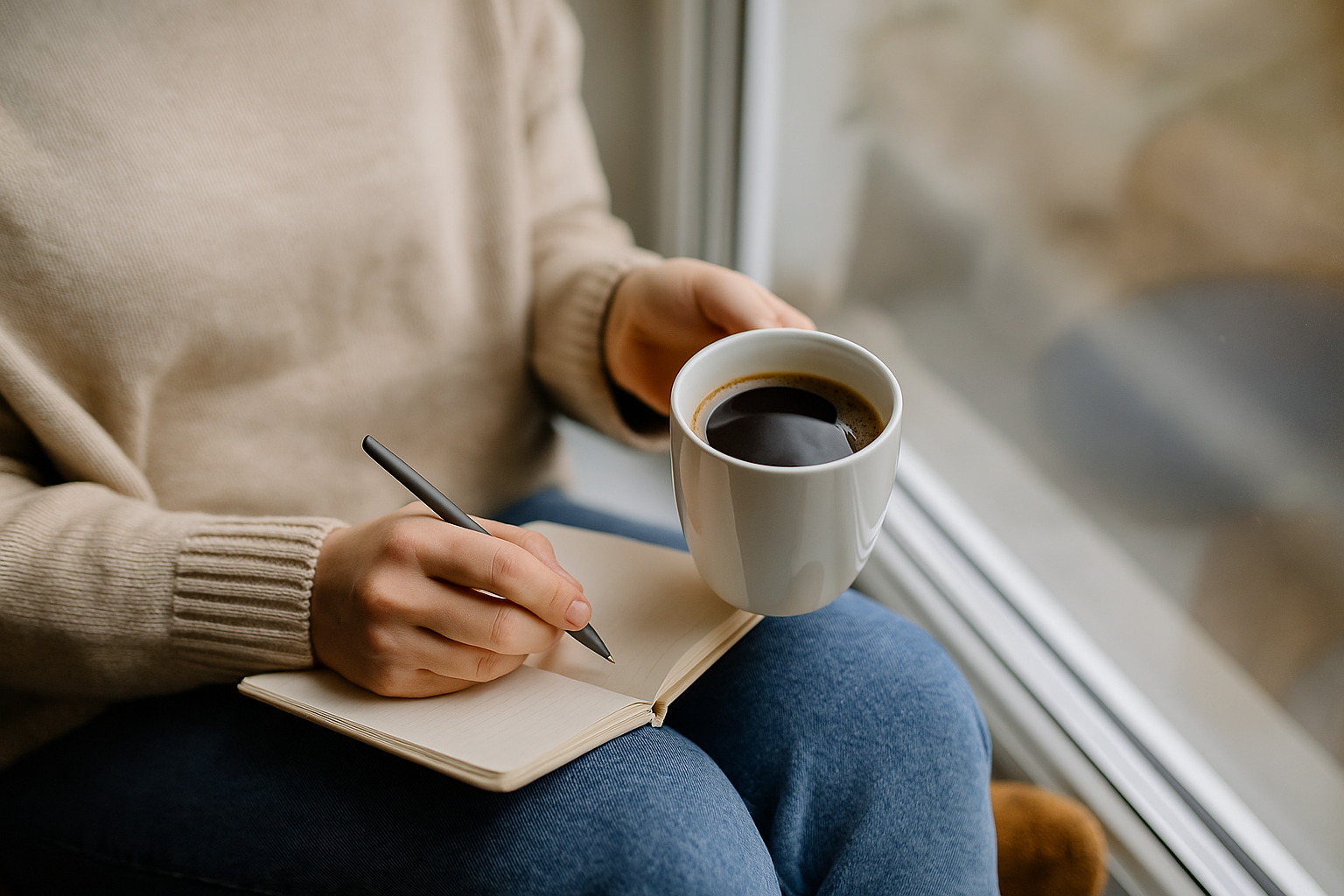A coffee break is often seen as a moment to recharge, a quick pause between tasks, or a reason to step away from the desk. But what if that short pause could do more than refresh your energy?
What if it became a small but meaningful wellness ritual that improves your focus, mood, and productivity?
In this article, we’ll explore how to turn your daily coffee break into a source of well-being. With a few mindful habits, your coffee break can support not just your workday—but your entire lifestyle.
The Hidden Power of a Coffee Break
Taking short breaks during the day is essential for mental clarity and productivity. Even five to ten minutes away from your screen can reset your brain, improve decision-making, and prevent burnout.
Adding coffee to that moment brings not only caffeine, but comfort, aroma, and a physical anchor to the pause. It creates a rhythm in your day that says: stop, breathe, and reset.
Whether you work at a desk, from home, or on your feet, a good coffee break offers:
- A shift in mental focus
- A physical change in posture and movement
- A small joy to look forward to
- A moment of quiet or connection
It’s more than just a caffeine fix—it’s a tool for resilience and balance.
Step 1: Step Away From the Task
To make your coffee break truly effective, don’t take it at your workstation. Physically stepping away signals your brain that you’re entering a different mode.
If possible, go to another room, outside, or to a designated break area. Even moving to a different chair can create a helpful mental shift.
This small action breaks the loop of constant productivity and allows your brain to rest and recover—making you more effective when you return.
Step 2: Sip Mindfully
Rather than rushing through your coffee, use this time to practice being present.
Notice the temperature, aroma, and flavor of your drink. Take slower sips. Feel the mug in your hands.
This small act of mindfulness reduces stress and helps you reconnect with your body and senses. It’s a mini meditation that only takes a few minutes.
If you usually check your phone during your coffee break, try leaving it aside. Just be in the moment with your drink.
Step 3: Pair Coffee With Movement
If your work involves long periods of sitting, coffee breaks are the perfect time to stretch or move.
While waiting for your coffee to brew or cool, try:
- Neck rolls and shoulder shrugs
- A short walk around your home or office
- Standing hamstring stretches
- A few yoga poses or deep breaths
Pairing movement with coffee helps circulation, improves focus, and makes your break even more restorative.
Step 4: Add a Healthy Snack
Coffee by itself can sometimes lead to jitters or an energy dip—especially if you drink it on an empty stomach.
Add a light, healthy snack to your coffee break to create sustained energy. Try:
- A handful of almonds or walnuts
- A banana or apple slices
- A slice of whole-grain toast
- Greek yogurt with honey
- A small piece of dark chocolate
This turns your break into a nourishing mini-meal that fuels your brain and stabilizes your energy.
Step 5: Use the Break to Reflect or Refocus
Instead of checking email or scrolling, try using your coffee break for reflection or light mental resets.
Simple prompts include:
- What’s going well today?
- What’s one thing I want to focus on next?
- Am I feeling tense or calm?
- What do I need in this next hour—energy, patience, creativity?
This makes your break purposeful without turning it into another task.
Jotting down a quick note or simply thinking through your priorities helps realign your attention and reduce mental clutter.
Morning vs. Afternoon Breaks
Your morning coffee break can serve as a momentum builder. It sets the tone for your day, keeps your energy rising, and reinforces healthy routines.
Afternoon breaks, on the other hand, are better suited for recovery. They provide a reset after lunch, fight the post-lunch slump, and prepare you for a productive final stretch.
In both cases, the key is intention. Don’t just take a break—use the break wisely.
Best Times for Coffee Breaks
While everyone’s schedule is different, most people benefit from coffee breaks at:
- Mid-morning (10:00–11:30 a.m.) – Ideal time for focus and momentum
- Early afternoon (2:00–3:30 p.m.) – Fights fatigue and boosts mood
- Creative slumps – Take a short break to let ideas resurface
- Transition moments – Before switching tasks or meetings
Avoid late-afternoon coffee if it interferes with your sleep.
Create a Break Ritual
Turning your coffee break into a ritual gives it structure and meaning. Your ritual could include:
- A specific mug you enjoy using
- Music or nature sounds while you sip
- Lighting a candle or opening a window
- Using a journal to jot down a thought
- Listening to a calming podcast or silence
It doesn’t need to be elaborate. The goal is consistency and comfort.
Coffee Breaks for Remote Workers
If you work from home, it’s easy to blur the lines between work and rest. Coffee breaks are a simple way to create boundaries.
Step away from your laptop. Avoid using the break to catch up on chores. Go outside if you can.
You could even schedule a virtual coffee break with a colleague to maintain connection and shared rhythm.
Final Thoughts: It’s More Than a Break
When done with intention, a coffee break becomes a wellness practice. It gives your brain a chance to reset, your body a chance to move, and your spirit a moment of calm.
It’s not the length of the break that matters—it’s how you spend it.
By turning your coffee break into a mindful pause, you create a daily anchor that supports balance, creativity, and focus. And the best part? You were going to drink coffee anyway.

Marcelo Oliveira is a coffee enthusiast and content creator specializing in barista skills, brewing methods, equipment reviews, coffee-related health insights, and fascinating curiosities from the coffee world. With a deep passion for every step of the brewing process, he turns technical knowledge into accessible and engaging content for both beginners and seasoned coffee lovers. Marcelo’s goal is to help readers appreciate the full experience of coffee—from bean to cup.
